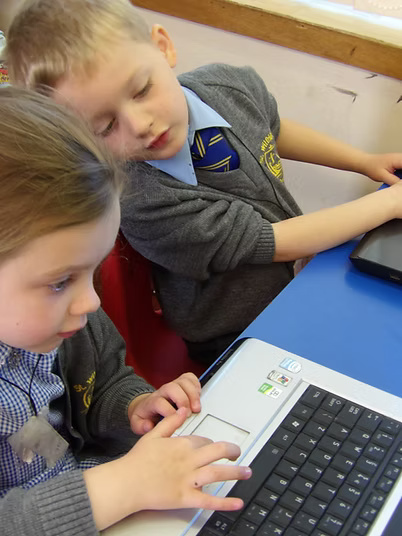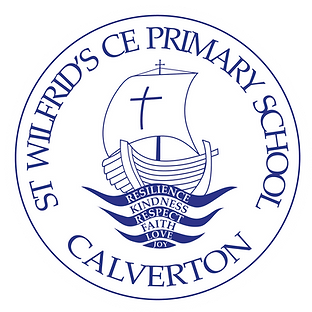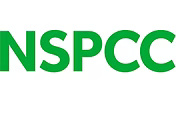Online Safety Advice

E-Safety
E-safety is about the safe use of the internet (via computers, mobile phones and other devices) both in and out of school. A 'duty of care' applies to all those working with children to educate on the risks and responsibilities of online communication.
Parents can be assured that Internet access at St. Wilfrid's is tailored for pupils' use with age-appropriate filtering and monitoring procedures in place in line with KCSIE 2024.
E-safety is an integral part of children’s education in today’s digital world and is embedded in their learning at school. We also want to help our parents and children improve their own understanding of e-safety issues so they can learn to use the internet and all digital media in a safe and secure way.
CEOP
 If you’re worried that your child is being groomed online or sexually exploited you should report your concerns to CEOP.
If you’re worried that your child is being groomed online or sexually exploited you should report your concerns to CEOP.
It is not always easy to spot the signs of online grooming and sexual exploitation so if you have any concern at all about someone your child is in contact with, you should get in touch.
You should always report if your child is or has been in contact with someone who is:
- Chatting online to your child about sex
- Asking them to do sexual things on webcam
- Asking to meet up if they’ve only met them online
- Requesting sexual pictures
- Forcing them into sexual activity
- Making them feel unsafe
CEOP is part of the National Crime Agency and can investigate what is happening – with the assurance that the safety and wellbeing of your child is paramount at all times.
If you are concerned that your child is in immediate danger, call 999.
|
|
|
|
|
You can access online safety resources for parents on The Key Parent Resource Hub. Here you will find guides on setting up parental controls as well a number of online safety fact sheets.
https://safeguarding.thekeysupport.com/parent-online-safety-zone/?org=0
https://www.youtube.com/watch?v=1TZmvbIu8pg Private parent YouTube link for families to watch:
Helping children be safer, more confident explorers of the online world.
At Home
As a parent you'll know how important the internet is to children - they use it to learn, play, socialise and express themselves. It's a highly creative place of amazing opportunities. But the technology children use every day can seem a bit daunting and you might worry about the risks your child can face online - such as bullying, contact from strangers or the possibility of them seeing illegal or inappropriate content.
You can download a simple checklist below that may help you start to protect your children online and decrease the risks they face. Or you can engage with your children regarding their use of the internet while at home. Here are some conversation starter ideas from www.childnet.com
-
Ask your children to tell you about the sites they like to visit and what they enjoy doing online.
-
Ask them about how they stay safe online. What tips do they have for you, and where did they learn them? What is OK and not OK to share?
-
Ask them if they know where to go for help, where to find the safety advice, privacy settings and how to report or block on the services they use.
-
Encourage them to help. Perhaps they can show you how to do something better online or they might have a friend who would benefit from their help and support.
-
Think about how you use the internet as a family. What could you do to get more out of the internet together and further enjoy your lives online.

https://safetynet.skipseducational.org/parent-guides/#a-parents-guide-to-sharing-pictures



